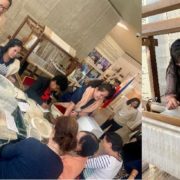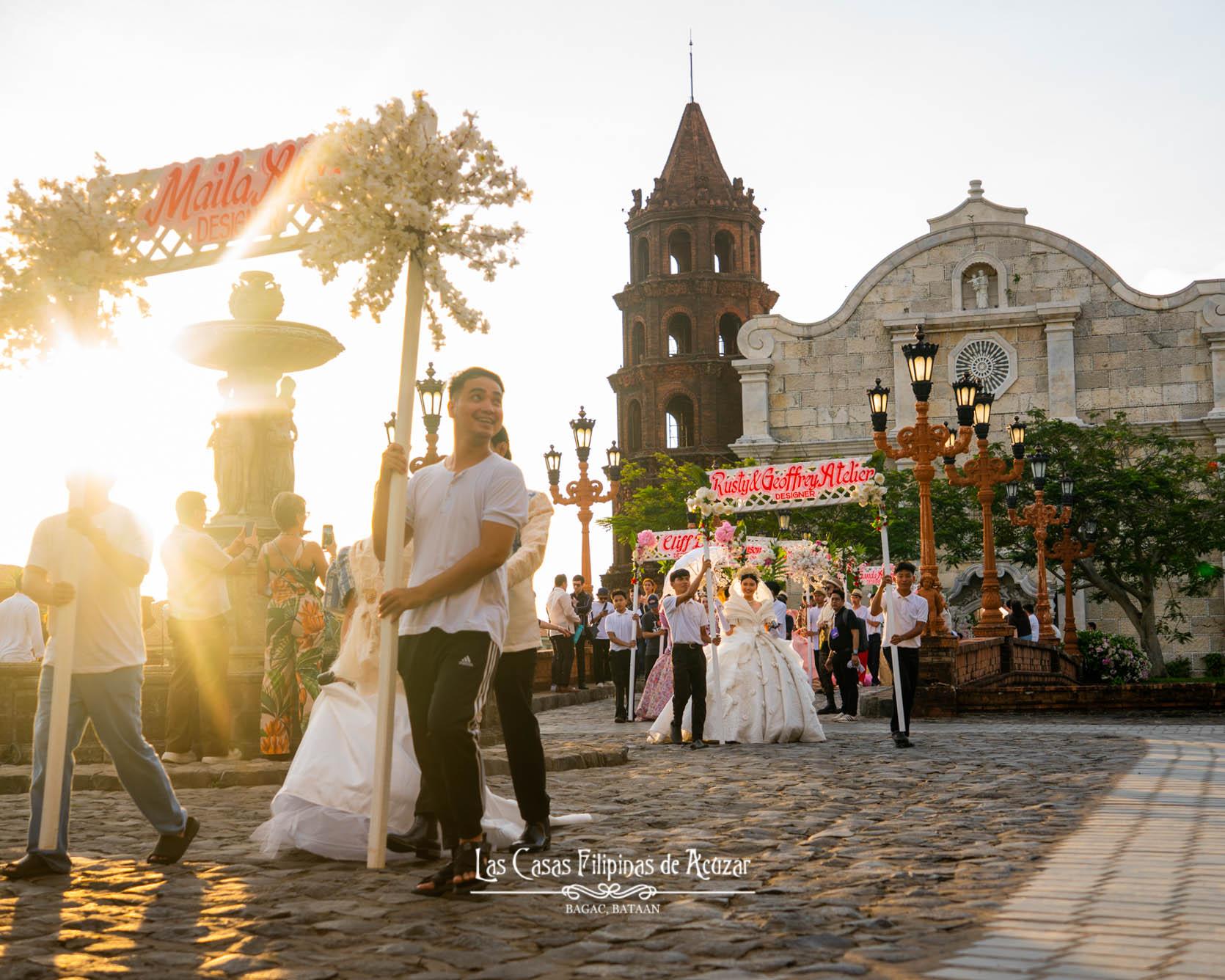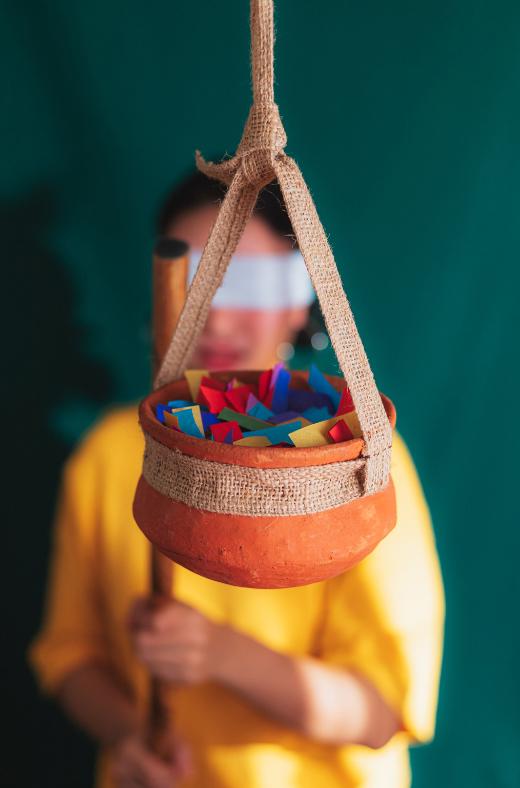Geneva, Switzerland — More than 200 guests, including dignitaries attending the 2019 General Assemblies of the World Intellectual Property Organization (WIPO), took part in the weeklong exhibition on Piña-Seda: Pineapple and Silk Cloths from the Philippines held in Geneva from September 30 to October 9, 2019.
The exhibition, which showcased pineapple silk fibers often associated with the globally recognized barong tagalog, included daily weaving demonstrations and embroidery workshops to show traditional methods of production and design creation.
Weavers from local communities in Tibiao, Antique demonstrated how to properly scrape fiber from pineapple leaves and weave using a traditional wooden loom. Meanwhile, embroiderers from Lumban, Laguna led popular workshops that taught participants how to make both simple and intricate designs on the piña-seda cloths by hand.
During the inaugural ceremony of the exhibit on October 2, 2019, Ambassador Evan P. Garcia, Philippine Permanent Representative to the United Nations and Other International Organizations, stressed the role of the international community in helping protect traditional knowledge and traditional cultural expressions.

“I am happy that the exhibit found a home in WIPO,” said Ambassador Garcia, commending the organization for actively contemplating an international instrument on intellectual property that addresses the unique needs of indigenous peoples and local communities.
“If one needs proof of the strength of multilateralism, one must only regard WIPO,” he added.
Deputy Speaker Loren Legarda, through National Museum Deputy Director General Dr. Ana Labrador, noted that the exhibition not only celebrated indigenous artistry through textile but brought Filipino weaving traditions to a wider audience.

Atty. Josephine Santiago, Director-General of the Intellectual Property Office of the Philippines (IPOPHL), meanwhile cited examples of how the Philippine Government had used intellectual property to protect traditional knowledge, such as the issuance of a collective mark for T’nalak, the hand-woven cloth of the T’boli.
Lauding the exhibit, WIPO Director General Gurry exclaimed, “This is an extremely interesting exhibition which concerns a special technique to make the special fabric that we all associate with the Philippines… a good combination of old world and new world expertise.”

The Philippine Mission conducted the event in partnership with the Office of Deputy Speaker Loren B. Legarda, House of Representatives, the National Museum of the Philippines, Intellectual Property Office of the Philippines (IPOPHL), and WIPO.
—
For more information, visit https://www.genevapm.dfa.gov.ph or
https://www.facebook.com/PHinGenevaUN/.







